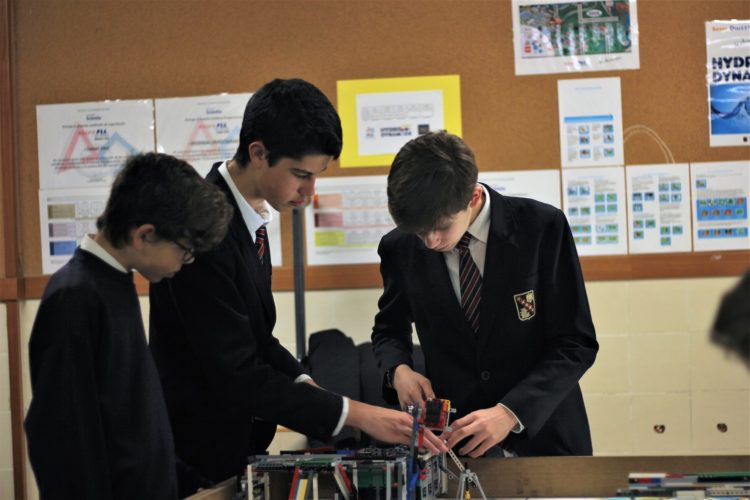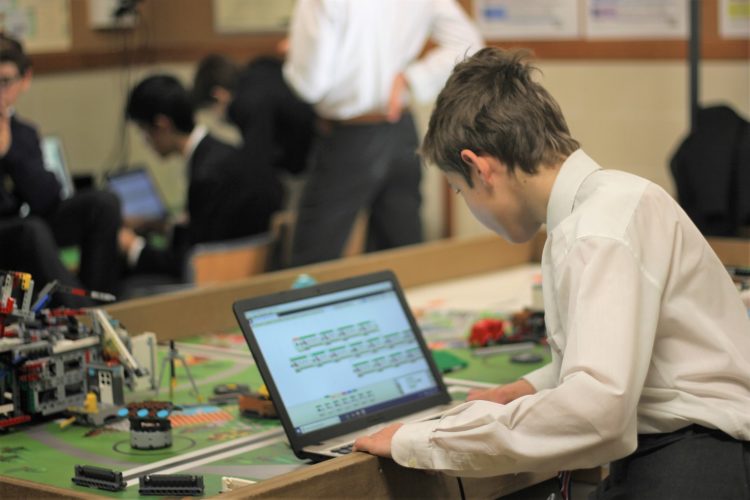4 de December del 2018
The importance of knowing how to work in a team
Technology subject has many objetives. We could mention creativity, problem solving, programming, analytical thinking… but a basic objective is also learning how to work in a team. It’s clear that they will have to work this way in the future and furthermore it will be a crucial need for many jobs, but ib this article we are focusing on competences aquired or improved in the short term, once someone really learns to work in a team, and its importance. Let’s imagine we are in a classroom; we’ll see these competences appear.
In a theory lesson people have been divided into groups of 3, and now it’s the time. Each of them has a role: coordinator, engineer and a programmer. Each of them has a responsibility and commits to the team, because if one of them fails, everyone fails. Each group will habe to solve 3 practices in different days and in each of them they will have to exchange roles, so that everyone will see where the feel more comfortable. At this stage the main goal of team work is to be seen: to add up each member’s skills and coordinate efforts in order to attain a common objective. But now we will discover which benefits this way of working has in order to get the best out of each person.

The lesson starts and the coordinator gets the box with the robot, while the programmer and engineer wait for him at the working space. It turns out a member of the group doesn’t feel comfortable with the teacher’s choice, because he isn’t friends with another team member: they don’t think alike in many aspects. However, the first decides to forget it, since he thinks that the most important thing at that time is to get a good grade while having fun and learning. This person is learning how to leave problems aside and treat everyone equally. He is learning to respect everyone, and so respect diversity.
A different group has already started doing the exercises and suddenly one of the members expresses there’s something wrong with the way the programmer has done his task during the week. The latter must know how to listen and accept positive criticism, recognizing he may have done things wrong. Both of them are developing social and communicative skills, which is not the first thing that comes to our minds when we talk about Technology; they are cross competences.

The lesson continues and a group gets stuck because the engineer feels blocked: he can’t find the way to build a more stable robot and doesn’t know where tu put the ultrasonic sensor so that it detects motion. The coordinator will have to collaborate and help his partner in order for them to fix it and attain the common goal of the team. The coordinator develops empathy, because he has realized what his partner was going through and offered help.
Class is about to end, and a group claims – proudly – to have finished the task and lets the teacher know. The teacher, who is very challenging, tells the group they have to do some adjustments, even if they thought they had done everything perfect. This group will have to be flexible and change in the next lesson what they thought was right, instead of starting straight away with the next assignment. When working in a team it is really important to be flexible, because things won’t always be done how or when one wants.
Suming up, it is proven that in each Technology lesson, while working in teams and delivering roles, many aspects such as responsibility, commitment, respect (for both people and opinions), empathy, flexibility, collaboration…etc are dealt with. They are – without a doubt – virtues and strengths that have to be taken into account in order to grow as persons every day.